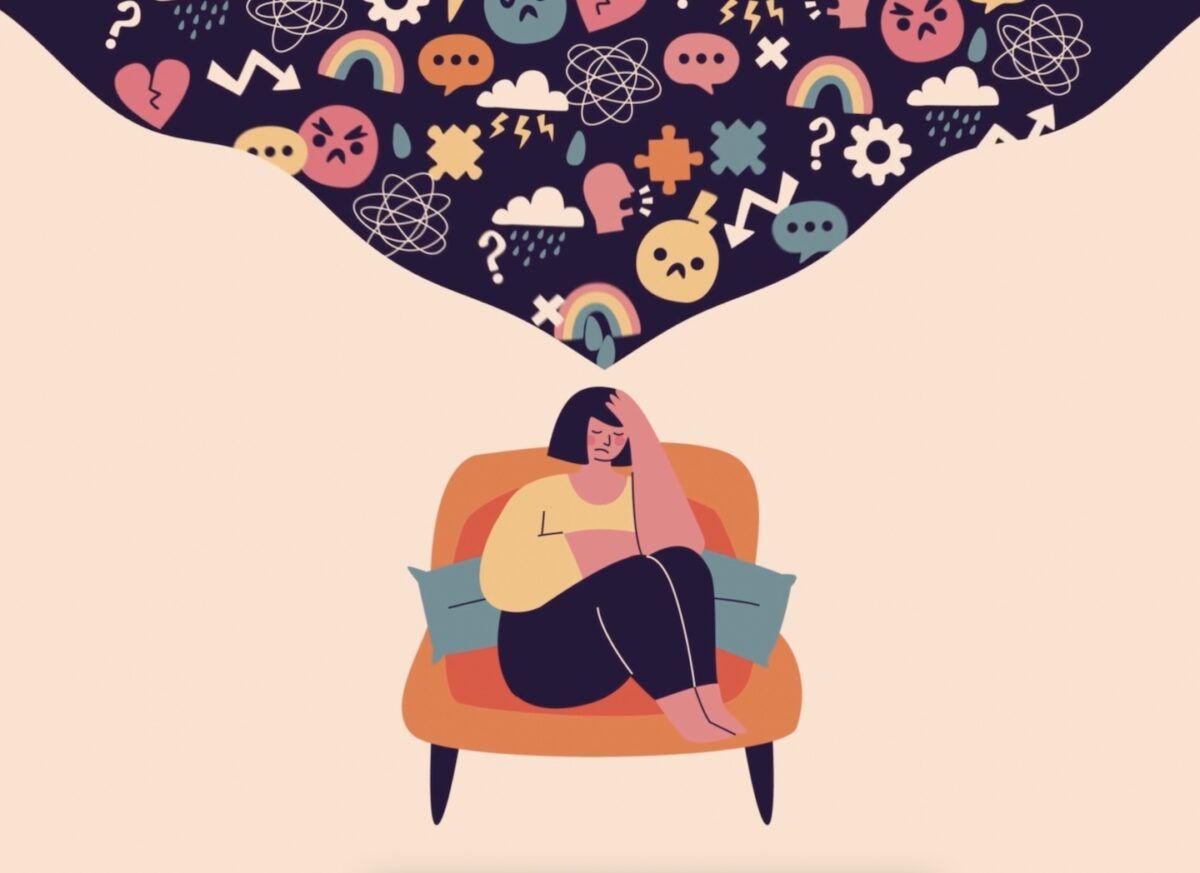All women become like their mothers, that is their tragedy. No man does, and that is his.
~Oscar Wilde
Oscar Wilde may have unwittingly revealed one of the great truths of human psychology. The complete truth, however, is that we all become our parents, we merge with our parents.
As much as we’d like to believe that we have got it under control and that we are entirely responsible for what we feel or how we interpret what happens to us, the fact of the matter is that your coping mechanisms in life didn’t start with you.
I’ve been reading this wonderful book by Mark Wolynn called It Didn’t Start With You and I’ll be quoting extensively from it in this post.
Whether we inherit our parents’ emotions in the womb, or they are transmitted in our early relationship with our mother, or we share them through unconscious loyalty or family traumas, one thing is clear: life sends us forward with something unresolved from the past.
We delude ourselves when we believe we can make our lives go exactly as we plan. Too often, our intentions are at odds with our actions. We might desire good health, but eat far too much junk food or find excuses not to exercise. We might yearn for a romantic relationship, but distance ourselves as soon as a potential partner gets close. We might want a career that’s meaningful, but fail to take the steps necessary to achieve it. The worst part is that the very thing that holds us back is often invisible to us, keeping us frustrated and confused.
Mark makes a persuasive case, backed by solid science, that how we not only inherit the physical attributes from our parents and grandparents but a vast number of the mental and emotional traits as well. Before I delve deeper into the subject (this is going to be a longish writeup), allow me to share a real life case study from the book. As follows:
When Gavin was thirty-four, he made a series of rash financial decisions that cost him and his family all the money they had saved. He had recently been let go from his job as a project manager for failing to meet deadlines. With a wife and two small children at home, he was desperate. Struggling to pay his bills and with his marriage now strained, Gavin spiraled into a deep depression.
When he was a small boy, his father, who also happened to be in his mid-thirties at the time, lost the family’s entire savings at the racetrack, believing he had insider information about a particular horse. At that point, Gavin’s mother took the kids and moved back to her parents’ home. After that, he rarely saw his father, whom his mother referred to as a selfish man, a compulsive gambler, and a loser.
Now, at thirty-four, though he hadn’t made the connection consciously, Gavin was repeating his father’s “loser” experience. He too had lost his family’s savings and was now facing the possibility of losing his wife and children. It wasn’t until our session together that he realized he had been reliving the past.
Being so far removed from his father, Gavin couldn’t understand how their lives mirrored such a similar pattern. By not sharing a conscious connection with his father, he had forged an unconscious one—he had unwittingly repeated his father’s failures. Understanding this, Gavin set out to repair their broken relationship.
It had been nearly a decade since they’d spoken. Conscious of his own resistance, and aware that he mostly knew his father through his mother’s stories, he proceeded cautiously, but with an open mind. In a handwritten letter, he told his dad that he was a grandfather of two little girls and that Gavin was sorry he hadn’t been in touch. He waited six weeks, but no response came. He was fearful that either his father had died—or worse, in his mind, his father had written him off.
Trusting an instinct beneath his fear, Gavin picked up the phone and dialed his father’s number. He was glad he did; surprisingly, his father had not received the letter. In the call, both men awkwardly fumbled through words and emotions while trying to forge a connection. After a few strained phone calls, genuine feelings began to surface. Gavin was able to tell his father that he deeply missed him. His father listened, choking back tears. He told Gavin how incredibly painful it had been to lose his family, and how a day hadn’t gone by without his feeling the sting of grief and sadness. His father suggested that they meet in person. Gavin agreed. Within weeks, the depression that had engulfed Gavin began to lift. With his father back in his life, Gavin began to stabilize things at home, restoring the trust he’d lost with his wife and strengthening his ties with his children. It was as if a key he never knew was missing had been found. He could now unlock the safe that held the most essential valuables of his life —his connection to his family.
Science calls it epigenetic inheritance. It’s mind boggling how a vast number of the things we do are directly influenced, if not completely driven, by not just what we have observed growing up but what we have inherited in our genes. In numerous studies, it was proved that veterans who suffered from PTSD passed on the trauma to their children and grandchildren.
If you suffer from a mental disorder or are depressed, it’s very likely that you have simply inherited it. If you find yourself traumatized beyond bear over things you couldn’t care less about, chances are that you have inherited this trauma.
Paternal PTSD, for example, increases the likelihood that the child will feel dissociated from [his or] her memories whereas maternal PTSD increases the likelihood that a child will have difficulty “calming down”. 1
Imagine the plight of children who are brought up in a family where both parents suffer from PTSD. Such children are likely to feel traumatized over the most trivial of matters and subsequently feel guilty for not being able to exercise control over their emotions. The truth is that it’s beyond their control. Until, of course, something is done about it. And the good news is that it is possible to heal trauma. Indeed, it must be healed for it to resolve. This understanding, however, can take a lifetime to come and sometimes it never does. While growing up, such children feel that somehow they can help their parents or fix the chronic unhappiness at home by sharing their parents’ grief. That almost never helps. Quite the opposite, in fact: they end up becoming their parents.
The last thing parents would want to see is their child suffering on their behalf. It is arrogant and inflated to think that we, as children, are better equipped to handle our parents’ suffering than they are. It is also out of tune with the order of life. Our parents existed before we did. They provided for us so that we could survive. We did not, as infants, provide for them.
When a child takes on a parent’s burden—whether consciously or unconsciously—he or she misses out on the experience of being given to, and can have difficulty receiving from relationships later in life. A child who takes care of a parent often forges a lifelong pattern of overextension and creates a blueprint for habitually feeling overwhelmed. By attempting to share or carry our parent’s burden, we continue the family suffering and block the flow of life force that is available to us and to the generations that follow us. 2
Naturally, the question arises how to heal yourself from the trauma. I will try to cover it in my next post. For now, I just wanted to bring to your attention that if you are mentally fragile or if you get traumatized and you feel that your response to situations is disproportionatly emotional, simply understand that as much as it may seem that way, you are not entirely responsible for it. I am not saying that our genetic inheritance absolves us from our moral, behavioral and spiritual obligations. But, you must understand that unless you consciously recognize, acknowledge and address the trauma you have inherited, the circumstances around you will feel more like fait accompli when clearly that’s not the case.
You must not beat yourself up over how or what you feel. If you or your loved ones are hurting and you want to be out of the vicious cycle, the trauma can be resolved so you may be the person you always wanted to be. But in order to do so, we have to tackle it head on. As Carl Jung once said, “When an inner situation is not made conscious, it happens outside as fate.” 3
Hence in this post, I just wanted to bring it to the fore of your consciousness. If I may give you the four noble truths of trauma, they would be:
- Trauma exists
- There is a cause
- It can be resolved
- There is a path
I will share the path in my next post, next month. For now, if you can, reflect on the fullness of life and love yourself for what and who you are. Know that you are not alone. Indeed, you are not even the cause of your mental trauma (or intense feelings and excessive thoughts).
Besides, there’s a silver lining too as Mark says, “The traumas we inherit or experience firsthand can not only create a legacy of distress, but also forge a legacy of strength and resilience that can be felt for generations to come.”
Finally, just remember, it didn’t start with you. (But, it can end with you.)
Peace.
Swami
P.S. The 2024 Sri Suktam Sadhana event will be announced on the ashram website in the next few days. If you’ve already attended it physically in the past, please be kind and consider doing it online in the Sadhana app this time around so someone who has never participated before can experience the same divinity.
Notes
A GOOD STORY
There were four members in a household. Everybody, Somebody, Anybody and Nobody. A bill was overdue. Everybody thought Somebody would do it. Anybody could have done it but Nobody did it.
Don't leave empty-handed, consider contributing.It's a good thing to do today.









Comments & Discussion
245 COMMENTS
Please login to read members' comments and participate in the discussion.